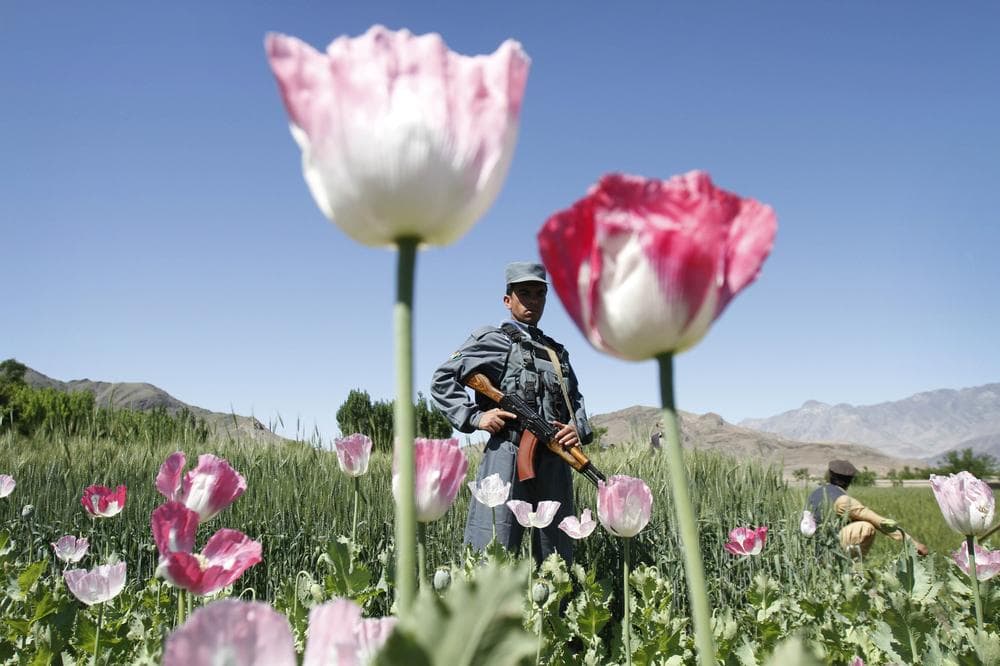Advertisement
The Real Cost Of Drugs

In recent years, American consumers’ understanding of global markets has become increasingly sophisticated. They have shown a new willingness to alter their patterns of consumption based on ethical concerns that would have seemed obscure or unimportant to earlier generations.
Whether buying a cup of coffee or a diamond engagement ring, contemporary Americans exercise an unprecedented awareness of the global impact of their purchasing decisions. The ecological, moral or political implications of foreign-sourced products — from Mexican ethanol to Chilean sea bass to Venezuelan oil — are being scrutinized from new perspectives that allow consumers to view their buying power as a small-scale, highly personal vehicle for social and political activism. This new culture of “ethical consumerism” has created a growing consensus that personal morality and political priorities can be expressed through what one does — or does not — consume.
We should embrace this as an opportunity to reframe the national discussion about our appetite for illegal drugs. Demand control — simply put, getting people not to buy drugs — has always been the holy grail of drug control policy, a tantalizing but ever-elusive goal. The US government is much better at cracking down on drug producers than at convincing American drug consumers to “Just say no.” But supply-reduction efforts have their limits: No matter how many tons of heroin and cocaine are seized at the border or how many acres of coca and poppies are poisoned in foreign fields, more will make its way onto American streets.
Supply reduction efforts only serve to highlight the elephant in the room: Americans buy drugs, and that’s why criminal gangs and narco-terrorists mobilize to sell them to us. The drug sellers are bad actors, to be sure, but we are not innocent as long as we create a market for their goods.
It’s time Americans realized what our appetite for illegal drugs does to the individuals who are compelled — economically or at gun point — to produce, process and transport the illegal drugs we use. Many Americans erroneously imagine illegal drug use to be a “victimless” crime, but in fact there are tens of thousands of victims.
It’s time for young Americans, who feel a moral obligation to those who live in poverty and oppression around the world, to understand the role that American drug use plays in creating violence and desperation in many countries. It’s time to draw a bright line connecting the 50,000 people brutally murdered in Mexico’s drug wars since 2006 to the $65 billion that, according to the Drug Enforcement Administration, Americans spend on illegal drugs each year. It’s no accident that the fragile countries that supply the world with illegal drugs are often the ones most riven by war and plagued with human rights abuses, poverty and fear.
These are messages that young Americans are more than capable of understanding. There is no reason to talk down to them with ad campaigns focused on the real or imagined health risks of drug abuse. Young people feel immortal, and the message of many Baby Boomer parents has been that drug use is a “stage” one passes through and is ultimately harmless. No government-sponsored scare tactics will change those flippant attitudes.
Today’s youth and their Boomer parents can understand, however, that for the United States to be respected as a world leader with moral authority, we cannot tolerate behaviors by our own citizens that create suffering and chaos in other countries. We have already opened our eyes to the damage that our untrammeled consumerism has wrought in foreign factories, rainforests and diamond mines. Now we need to open our children’s and our nation’s eyes to the global damage that our self-indulgent attitudes toward illegal drug use inflict on the peoples of Guatemala, Afghanistan, Thailand, Mexico and elsewhere. In these countries people are denied true, sustainable economic development because supplying drugs to Americans is easier and more profitable for a select few.
We need to associate drugs not with self-harm, but with harm to nameless people around the world, people who have died or lived in fear and poverty so the product could be brought to the American market. Illegal drug use should be as politically incorrect as secondhand smoke, texting while driving and fois gras. It may take a generation to change attitudes, but as with smoking and littering, social change can be achieved by telling kids the truth: Illegal drugs may or may not hurt you, but our appetite for them causes untold harm to people you may never see.
In the end, it seems, Nancy Reagan was right: We should just say no. She just didn’t explain why.
This program aired on July 12, 2012. The audio for this program is not available.